4G LTE drone Data and Video Transmission for RC FPV Drone Parts
$2,498.00
Compare4G LTE drone solutions for long distance flights Data and Video Transmission for RC FPV Drone Parts
4G LTE is good enough for the vast majority of mobile users, and will be for some time. Logically, if or when True 4G or LTE Advanced becomes the norm, it will suffice for a time while mobile providers roll out 5G and so on. In telecommunication, Long-Term Evolution (LTE) is a standard for wireless broadband communication for mobile devices and data terminals, based on the GSM/EDGE and UMTS/HSPA technologies. It increases the capacity and speed using a different radio interface together with core network improvements. LTE is commonly marketed as “4G LTE and Advance 4G”, but it does not meet the technical criteria of a 4G wireless service, as specified in the 3GPP Release 8 and 9 document series for LTE Advanced. LTE is also commonly known as 3.95G. The requirements were originally set forth by the ITU-R organization in the IMT Advanced specification. However, due to marketing pressures and the significant advancements that WiMAX, Evolved High Speed Packet Access and LTE bring to the original 3G technologies, ITU later decided that LTE together with the aforementioned technologies can be called 4G technologies. The LTE Advanced standard formally satisfies the ITU-R requirements to be considered IMT-Advanced. To differentiate LTE Advanced and WiMAX-Advanced from current 4G technologies, ITU has defined them as “True 4G”.
It is the next-generation industrial drone communication system, which can not only realize 4G or even 5G public network communication, but also expand 4G LTE private network communication, thus realizing unlimited connection of real drones.
Relying on the advanced 4G LTE/5G network and the Internet, mobile phone signals can be interconnected, regardless of regional, regional or even national restrictions. There is almost no co-channel interference and obstacle restrictions.
Support multi-device binding and interconnection
A CUAV universal standard account can support up to 12 LTE-LINK terminals simultaneously binding.
Users can log in to the CUAV GS ground station via mobile phone or computer to control and manage one or more drones of their own.
Via UAV-HUB platform to view the location and information of the drones in the group in real time, meeting the needs of most enterprise drones.
Cloud management
Remote WEB cloud management drone through the latest CUAV UAV-HUB Web cloud drone management platform
Includes real-time video and data from drones, flight plans, data playback, permission settings, etc.
Safe and reliable

LTE-LINK, client, and server all adopt TLS 1.3 AES-256 bidirectional symmetric and asymmetric hybrid encryption.
Protect your drone data security and reliable transmission, eliminate data tampering, eavesdropping and man-in-the-middle attacks
Support for multi-platform clients
At present, CUAV has developed Android, WINDOWS, and WEB clients to meet customer needs of different application needs
Overall performance
| Network Type |
|
|
| Support
camera type |
HDMI or SDI HD (depending on model) | |
| Support for flight control type | Pixhack V2/V3/V5 Pixhawk and so on | |
| Support communication protocol | MAVLINK1/2 | |
| Transmission distance | theory is not limited, depending on the coverage of the base station
Scala |
|
| Scalable device | Redundant network module or private network module (TYPE-C extension) | |
| Wireless band | LTE(FDD): B1,B3,B8; LTE(TDD): B39,B40,B41(38), all bands with diversity DC-HSPA+: B1,B9,B5,B8; TD-SCDMA: B34, B39, all bands with diversity EDGE/GPRS/GSM: 1800/900MHz |
|
| Support client | Android 5.0 and above and WINDOWS XP \ WINDOWS 10 |
Working environment and physical parameters
| Operating Voltage |
|
|
| Working current | 12V/1.5A MAX | |
| Operating temperature | -10°~ +60° | |
| Size | 75 mm * 39mm * 17mm | |
| shell material | 6063 Aviation Aluminum | |
| Antenna interface type | SMA inner hole | |
| Screen type | OLED self-illumination 128*64 resolution |
Interface Type
| Support network type |
|
|
| Support camera type | HDMI or SDI HD (depending on model) | |
| Extension ports | ||
| RJ45 Gigabit Ethernet port X1
TTL serial port X3 TYPE-C USB X1 4G antenna extension X2 HDMI IN or SDI IN (depending on the hardware model) |
User Manual(click to download PDF)
















| Weight | 3 kg |
|---|---|
| Dimensions | 30 × 30 × 20 cm |
Based on 0 reviews
Be the first to review “4G LTE drone Data and Video Transmission for RC FPV Drone Parts”
You must be logged in to post a review.
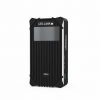
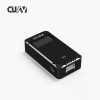
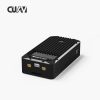
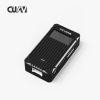

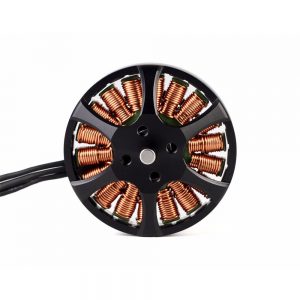
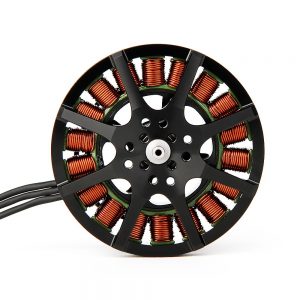
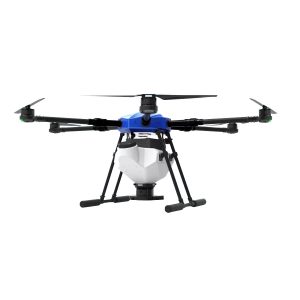
There are no reviews yet.